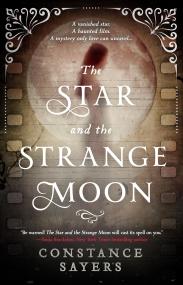Promotion
Use code MOM24 for 20% off site wide + free shipping over $45
The Sisters of the Winter Wood
Contributors
By Rena Rossner
Formats and Prices
Price
$18.99Price
$23.99 CADFormat
Format:
- Trade Paperback $18.99 $23.99 CAD
- ebook $4.99 $6.99 CAD
- Hardcover $27.00 $35.50 CAD
- Audiobook Download (Unabridged)
This item is a preorder. Your payment method will be charged immediately, and the product is expected to ship on or around June 18, 2019. This date is subject to change due to shipping delays beyond our control.
Also available from:
*Publishers Weekly: Best Book of 2018: SF/Fantasy/Horror
*BookPage: Best Book of 2018: Science Fiction & Fantasy
"With luscious and hypnotic prose, Rena Rossner tells a gripping, powerful story of family, sisterhood, and two young women trying to find their way in the world." — Madeline Miller, bestselling author of Circe
In a remote village surrounded by vast forests on the border of Moldova and Ukraine, sisters Liba and Laya have been raised on the honeyed scent of their Mami's babka and the low rumble of their Tati's prayers. But when a troupe of mysterious men arrives, Laya falls under their spell — despite their mother's warning to be wary of strangers. And this is not the only danger lurking in the woods.
As dark forces close in on their village, Liba and Laya discover a family secret passed down through generations. Faced with a magical heritage they never knew existed, the sisters realize the old fairy tales are true. . .and could save them all.
Discover a magical tale of secrets, heritage, and fairy tales weaving through history that will enchant readers of The Bear and the Nightingale, Uprooted and The Golem and the Jinni.
Praise for The Sisters of the Winter Wood:
"Intricately crafted, gorgeously rendered. . .full of heart, history, and enchantment." —Publishers Weekly (starred review)
"A richly detailed story of Jewish identity and sisterhood. . . Ambitious and surprising." —Kirkus
For more from Rena Rossner, check out The Light of the Midnight Stars.
Genre:
-
"With luscious and hypnotic prose, Rena Rossner tells a gripping, powerful story of family, sisterhood, and two young women trying to find their way in the world. I gulped it down!"Madeline Miller, author of The Song of Achilles and Circe
-
"Intricately crafted, gorgeously rendered...full of heart, history, and enchantment."Publishers Weekly (starred review)
-
"Rossner's debut weaves a richly detailed story of Jewish identity and sisterhood... emotionally charged, full of sharp historical detail and well-deployed Yiddish phrases...Ambitious and surprising."Kirkus
-
"A beautiful tale of sisterly love and Jewish identity [with] haunting, otherworldly allure."BookPage
-
"The Sisters of the Winter Wood is a graceful, poetic, deeply moving novel. A simply gorgeous book in every sense."Louisa Morgan, author of A Secret History of Witches
-
"An enthralling debut."Lavie Tidhar, author of World Fantasy Award winner Osama
-
"This dark fairy tale about sisterly love and Jewish strength and courage, set against the backdrop of a deep and deadly winter forest, will haunt me for a long time. A powerful, emotional debut."Julie C. Dao, author of Forest of a Thousand Lanterns
-
"An incredible achievement - a rich literary fairytale, with all the cadences of the folk stories of old. The kind of book that Neil Gaiman and Naomi Novik might have together cooked up, it's far too easy to get lost in the forests between the pages of this book and disappear for days on end."Robert Dinsdale, author of The Toymakers
-
"This lyrical fairy tale of two sisters in a small village in Ukraine is a book to be savored rather than devoured."Library Journal
-
"A compelling narrative in a magical setting that felt completely real, and the complex characters and plot twists enticed me to keep turning the pages."Historical Novel Society
-
"The Sisters of the Winter Wood is a vivid, fascinating, excellently drawn story of the fragility of peace and the resilience of love that reaches back into history, out into folklore, and forward into the present."Pamela Dean, author of Tam Lin
-
"The Sisters of the Winter Wood mixes fairy tale, poetry, history, and heart to create an enchanting and mesmerizing tale of sisterly love."Sarah Beth Durst, award-winning author of The Queens of Renthia series
-
"A deeply moving story of sisterly love, steeped in the rich tradition of Jewish folklore. Atmospheric and enchanting, it's sure to delight fans of Naomi Novik's Uprooted."Lana Popovic author of Wicked Like A Wildfire
-
"Rena Rossner weaves together fairytales with a strong current of faith to create a stunning tapestry of a story unlike anything I've ever read. Laya and Liba are going to stick with me for a long, long time."Sara Holland, author of Everless
-
"Fairy tales, folklore, and poetry make an intoxicating brew in The Sisters of the Winter Wood, a luminous debut by an exciting new talent."Ilana C. Meyer, author of Last Song Before Night
-
"Rossner weaves an elegant tapestry of the love between sisters, the value of faith and family, and knowing one's true friends in times of peril."J. Kathleen Cheney, author of The Golden City
- On Sale
- Jun 18, 2019
- Page Count
- 480 pages
- Publisher
- Redhook
- ISBN-13
- 9780316483360
Newsletter Signup
By clicking ‘Sign Up,’ I acknowledge that I have read and agree to Hachette Book Group’s Privacy Policy and Terms of Use







